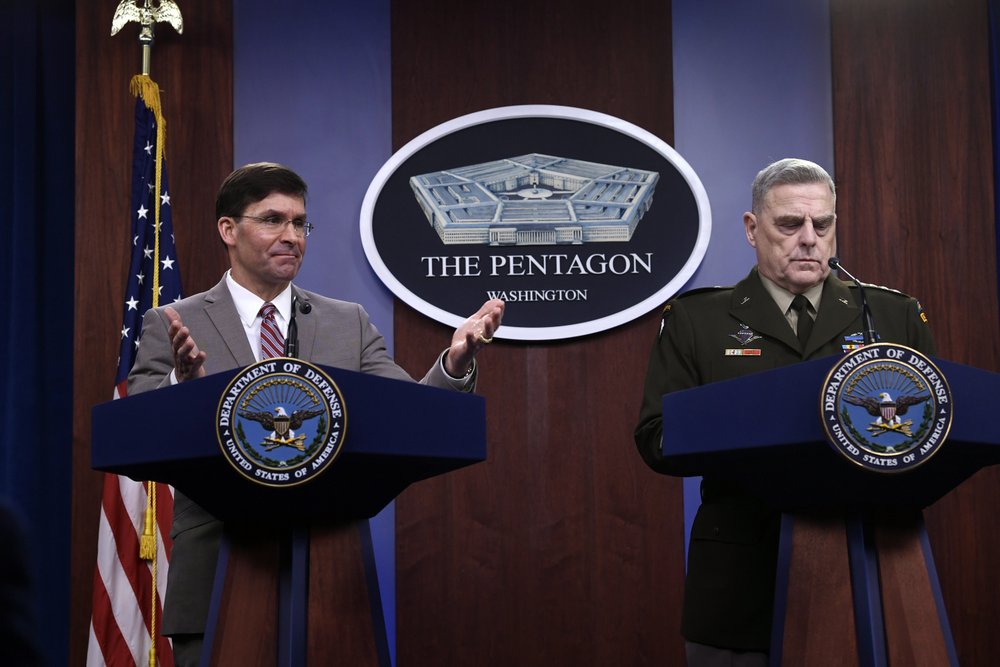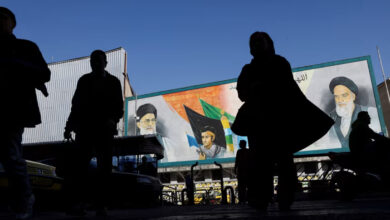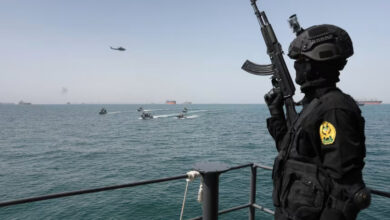
BAGHDAD (AP) — Iraq’s military said five security force members and a civilian were killed early Friday in a barrage of U.S. airstrikes, which were launched hours after a rocket attack killed and wounded American and British servicemen at a base north of Baghdad.
An Iran-backed Shiite militia group vowed to exact revenge for the U.S. strikes, potentially signalling another cycle of tit-for-tat violence between Washington and Tehran that could play out inside Iraq.
U.S. officials said the airstrikes’ intended targets were mainly weapons facilities belonging to Kataeb Hezbollah, the militia group believed to be responsible for Wednesday’s attack on Camp Taji base.
However, Iraq’s military said the strikes killed three Iraqi army commandos and two federal police officers. A Shia endowment in the city of Karbala said the strikes resulted in the death of one civilian in an airport complex being constructed by the endowment.
Iraq’s military condemned the airstrikes, saying they were in breach of the country’s sovereignty.
“The pretext that this attack came as a response to the aggressive action targeting Taji Camp is a false one, and leads to escalation without providing any solutions to control the situation,” the statement said.
Iraq’s caretaker Prime Minister Adel Abdul-Mahdi has already ordered an investigation into the rocket attack on Camp Taji, calling it “a very serious security challenge and hostile act.”
Kataib Hezbollah did not immediately comment on the U.S. airstrikes. But Harakat Hezbollah al-Nujaba, an Iran-backed militia group designated as a terrorist organization by the U.S., vowed to retaliate with “an eye for an eye” for the strikes in a statement Friday.
The Iraqi military statement also said the U.S. strikes wounded five militia members belonging to the Popular Mobilization Units, an umbrella group that comprises an array of Iraqi militia groups, some of them Iran-backed.
Wednesday’s attack on Camp Taji was the deadliest to target U.S. troops in Iraq since a late December rocket attack on an Iraqi base that killed a U.S. contractor and set in motion a series of tit-for-tat attacks that brought Iraq to the brink of war.
American airstrikes targeting the Iran-backed militia Kataib Hezbollah led to protests at the U.S. Embassy in Baghdad.
A U.S. drone strike in Baghdad then killed Iranian Gen. Qassem Soleimani, a top commander responsible for expeditionary operations across the wider Mideast. Iran struck back with a ballistic missile attack on U.S. forces in Iraq, the Islamic Republic’s most direct assault on America since the 1979 seizing of the U.S. Embassy in Tehran.
The U.S. and Iran stepped stepped back from further attacks after the incident. A senior U.S. official had said in late January, when U.S.-Iran tensions had cooled, that the killing of Americans constituted a red line that could spark more violence.
Reporting by SAMYA KULLAB and QASSIM ABDUL-ZAHRA
Image: Defense Secretary Mark Esper, left, speaks as Chairman of the Joint Chiefs of Staff Army Gen. Mark Milley, right, listens during a briefing at the Pentagon in Washington, Monday, March 2, 2020. (AP Photo/Susan Walsh)




